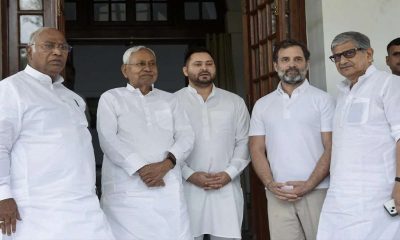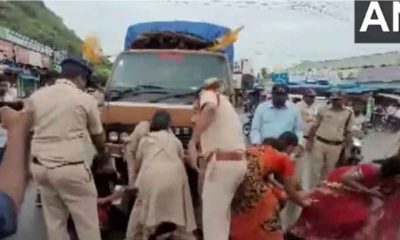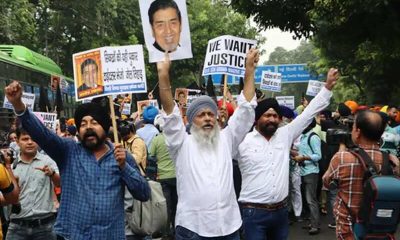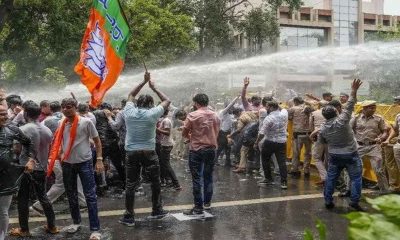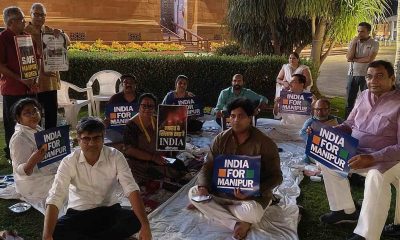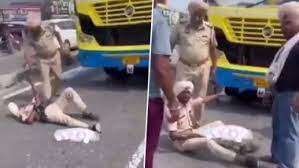India News
2020: Pandemic, protest and popular unrest
Most people will have memories of 2020 as the year in which the unforeseeable happened.
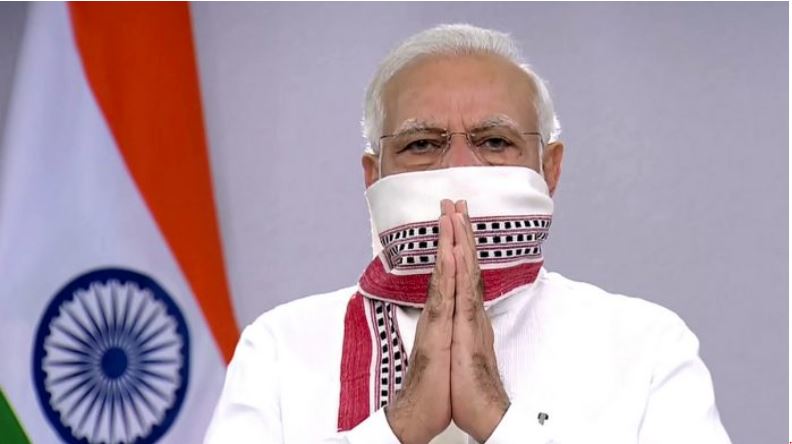
Most people will have memories of 2020 as the year in which the unforeseeable happened. Who would know that there will be virus that will mutate and continue killing people of all ages when all the killer diseases, even HIV/AIDS, barring cancer, came under the power of medicine.
From coronavirus to cyclones, unplanned national lockdown to migrant labour crisis, anti-CAA protests to farmers’ protests, riots in Delhi after 36 years and the verdict in the Babri Masjid conspiracy case to the work beginning the construction of the Ram Mandir right in middle of the pandemic and tensions at Indian borders with China and Nepal to Donald Trump’s India visit, the entire year contained the world-changing developments. And a dedicated attempt to leave a new political legacy on New Delhi by rebuilding Parliament in the Central Vista redevelopment, shorn of Edwin Lutyens and the British Raj.
While India struggled with the pandemic, the year saw some sensational crime stories such as the Vikas Dubey encounter, the Hathras gangrape case, Palghar mob lynching and Ballabhgarh daylight murder that dominated media headlines, drawing room discussions and social media trolling. Moreover, the swollen streams of jobless migrants heading home from cities shut in the nationwide lockdown, prompted by sheer panic, and the Hathras case shook the nation in 2020.
As 2020 ends, here are the top-of-the-mind political developments of the year.
- Anti-CAA protests
2020 dawned with protests against the Citizenship Amendment Act occurred after the government enacted the law on December 12, 2019. Citizens across the country were on the streets, demanding the abrogation of the discriminatory citizenship law. Most of these protests were led by Muslim women.
The year began with the Shaheen Bagh protests which began in December 2019 after the police brutality in Jamia Millia Islamia and Aligarh Muslim University, when students were protesting the citizenship law. On the lines of Shaheen Bagh protests, the protests against Citizenship Amendment Act started in various parts of the country.
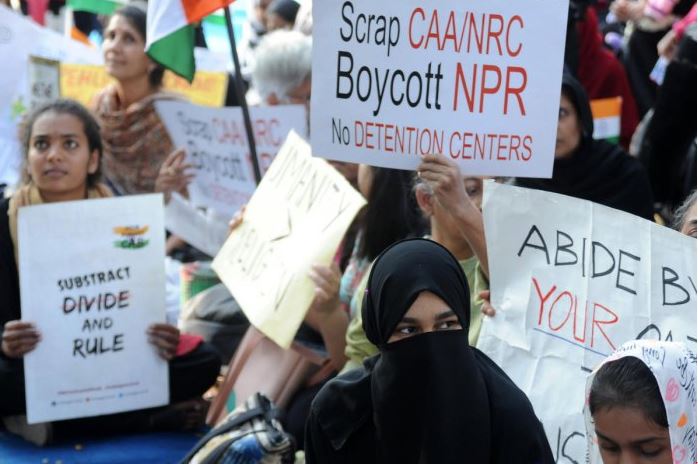
The Shaheen Bagh protests, however, hit the news in 2020 due to increasing number of attacks on the protesters by CAA supporters which resulted in the riots in Northeast Delhi.
The women of Shaheen Bagh were against the CAA because they saw it as anti-minority, specifically against the Muslims of India. The citizens had the fear that many of them would be declared non-citizens after implementing the law and would become stateless and could be locked up in detention centres, with the talk of the National Register of Citizens, like in Assam.
The agitation lasted 101 days, finally, with the Covid-19 outbreak and the lockdown, the government was able to quell the protests. The CAA has not been withdrawn, but its rollout has been delayed in West Bengal, the BJP is not talking about CAA and NRC in its campaign, apart from their use as dogwhistles.
- Delhi riots
On the evening of February 23, riots broke out in Northeast Delhi between anti-CAA and pro-CAA people which took a communal turn and led to the death of over 53 people, including a policeman and an Intelligence Bureau personnel, while 200 were reported injured. The communal tensions continued for the next week. Shops and houses were burnt down and even mosques were attacked and protesters threw stones, set vehicles and shops ablaze and transformed a small part of the capital into a war zone. The violence occurred a few hours before United States President Donald Trump was expected to visit Delhi.
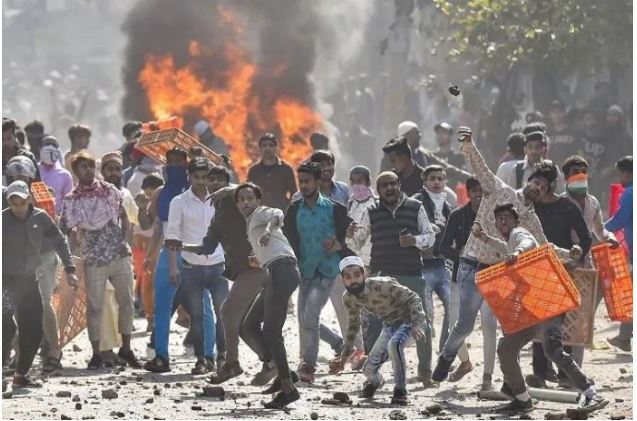
The opposition’s demand for the resignation of Union Home Minister Amit Shah didn’t work as Shah replied that the Congress had no right to point fingers at any party. Delhi Chief Minister Arvind Kejriwal paraded his usual line, that Delhi Police was not under his control and the Centre remained the boss.
- Madhya Pradesh political crisis
In 2018, the Congress emerged as the single largest party in Madhya Pradesh by winning 114 seats in Madhya Pradesh Assembly elections and had formed the government with the help of one Bahujan Samaj Party MLA and one Samajwadi Party MLA and four independent MLAs. The BJP gave the Congress a tough fight and bagged 109 seats. Mayawati’s Bahujan Samaj Party won two seats while Akhilesh Yadav’s Samajwadi Party had won one seat.
On March 5, 2020, 10 MLAs including 6 Congress, 2 BSP, 1 SP member and 1 Independent Member of Parliament flew to Delhi without informing the party. Initially, 6 Congress MLAs returned home while the remaining 4 flew to Bengaluru, where Congress MLA Hardeep Dang resigned. The remaining 3 MLAs returned soon and denied the claims made by Congress leaders that they were a part of horse-trading.
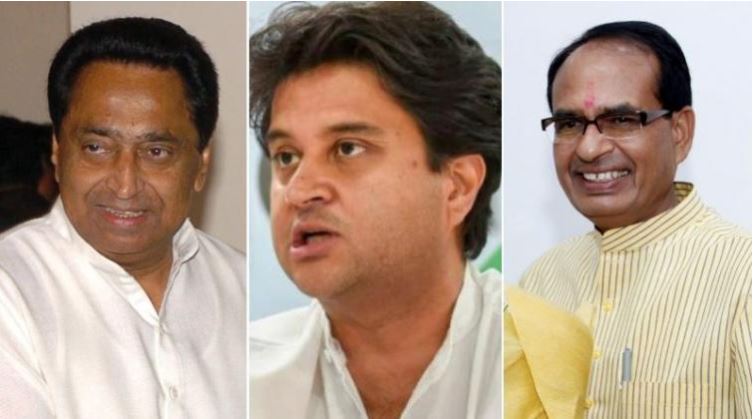
Congress leader Jyotiraditya Scindia switched to the BJP in the presence of JP Nadda. After joining the party, Scindia slammed the Madhya Pradesh CM Kamal Nath and other Congress leaders for not accepting his importance in the party. Later, he got the BJP Rajya Sabha ticket.
Both the parties moved to the Supreme Court for a floor test in Madhya Pradesh and the Court set March 20, 2020 for the floor test in Madhya Pradesh Legislative Assembly. Kamal Nath then quit. By July 23, 2020, another 3 Congress MLAs had exited the party to join the BJP. The Madhya Pradesh Assembly was adjourned till March 26 in view of the state government’s concern over coronavirus even as the BJP raised the demand for the holding of a floor test.
- Ram Mandir Bhoomi Pujan
Ayodhya continued to remain in focus and grabbed media headlines. Just months after the Supreme Court settled the decades-old land dispute over the site where the Babri Masjid stood till 1992. The Ram Mandir construction officially started after a Bhoomi Poojan ceremony. On August 5, Prime Minister Narendra Modi along with Yogi Adityanath and RSS chief Mohan Bhagwat performed the Bhoomi Pujan ceremony which was live telecast.
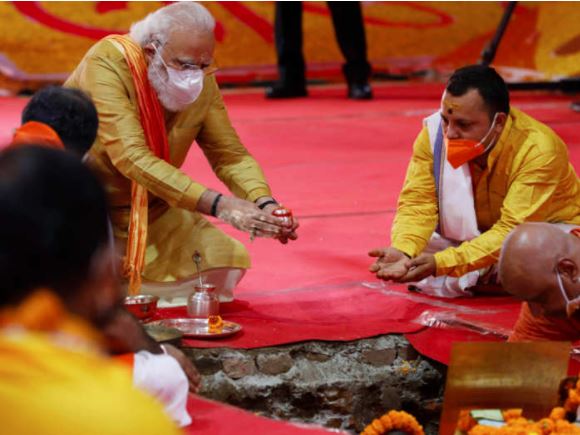
Three-day long Vedic rituals were held before the ground-breaking ceremony where PM Modi installed a 40-kg silver brick as the foundation stone of the Ram Temple. There were a large number of devotees who attended the ceremony despite the Covid outbreak. The guest list, including religious leaders who formed part of the movement that started in the 1980s, was limited to 175 people in view of the Coronavirus. All 7,000 temples in a 7 km radius of Hanumangarhi were also asked to join the celebrations by lighting diyas.
PM Narendra Modi paid his respects to the many who had sacrificed for the Ram temple. Bhagwat also thanked L.K. Advani for his contributions to the movement to get the temple built.
- Nirbhaya convict hanged
Finally, justice was delivered in the Nirbhaya rape case almost after eight years. All four death-row convicts in the 2012 Nirbhaya gangrape and murder case were hanged on March 20. Akshay Thakur, Vinay Sharma, Pawan Gupta and Mukesh Singh had been sentenced to death by a trial court in 2013.
The 23-year-old physiotherapy student died from her injuries days after being raped by six men on a moving bus. The incident caused outrage and led to new anti-rape laws in India.
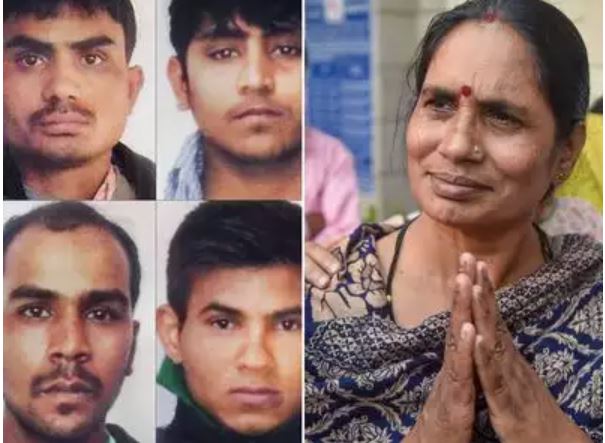
Six people were arrested in the case, one of them, Ram Singh, was found dead in jail in March 2013, having apparently taken his own life. Another, who was 17 at the time of the attack, was released in 2015 after serving three years in a reform facility.
In the last few months, all four convicts filed petitions in the Supreme Court in a bid to reduce their sentences to life imprisonment but the top court rejected their petitions, leaving the men with no other legal recourse.
A last-minute appeal to have the death penalties commuted was also rejected hours before their hanging. Minutes after the hanging, the victim’s mother said she hugged her daughter and finally got justice.
- Babri conspiracy case
A special CBI court acquitted all 32 accused in the Babri Masjid demolition case saying the act was spontaneous while the country’s apex court had already termed the demolition of Babri as a pre-planned act. The accused, including LK Advani, Murli Manohar Joshi, Uma Bharati, Kalyan Singh, faced charges like criminal conspiracy, rioting, promoting enmity between different groups, and unlawful assembly.
Acquitting accused, the court said the demolition of Babri Masjid was not pre-planned and the accused had tried to stop the mob, those who climbed on the dome were anti-social elements and the authenticity of the audio and video clips produced by the CBI is not reliable.
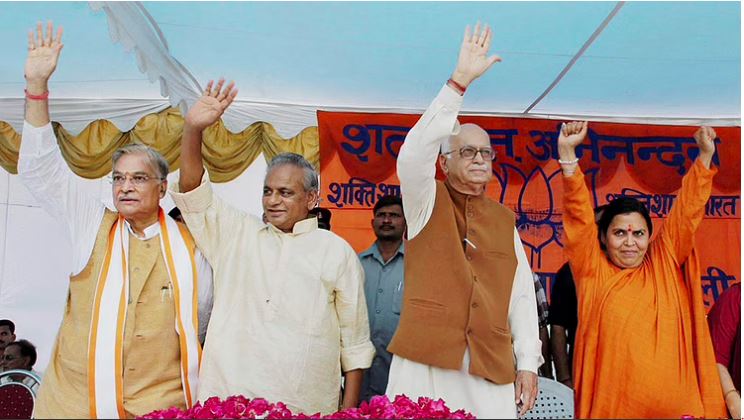
At the end of a long trial, each of the 32 living accused persons were given a clean chit and 17 other accused who died during the 28 years since the demolition.
In the title suit, the verdict for which was given in November 2019, the bench, headed by then Chief Justice of India Ranjan Gogoi, had observed that the entire structure of the mosque was brought down in a calculated act of destroying a place of public worship. Muslims have been wrongly deprived of a mosque which had been constructed well over 450 years ago, they said.
A similar sentiment was expressed in the report of the Justice Liberhan Commission, set up by the then P.V. Narasimha Rao government within days of the demolition. Justice M.S. Liberhan, who took 17 long years to complete his findings, said the demolition was orchestrated.
All evidence gathered by the country’s premier investigation agency was said to be insufficient or weak by the court. The court acquitted all the accused by giving simple reason that the video and audio clips furnished by CBI as the most incriminating evidence against them appeared to be either doctored or fabricated.
Also Read: World highlights 2020: Trump, Covid, Biden, Vaccine?
- Bihar Assembly election
Bihar pulled off a mammoth electoral exercise in the wake of the Covid-19 which saw the National Democratic Alliance of Nitish Kumar’s Janata Dal United and the BJP retain power by winning 122 seats in a closely contested 243-member Bihar legislative assembly election.
Managing victory in 72 seats, the BJP gained an upper hand while the JDU as a part of the NDA managed to win 52 seats in the 243-seat legislative assembly. More importantly, the BJP emerged as the stronger partner, returning with a tally far greater than that of the JDU, a development that is expected to alter power equations in the times to come. The NDA has contested the election on the formula of equal seat share in the state.
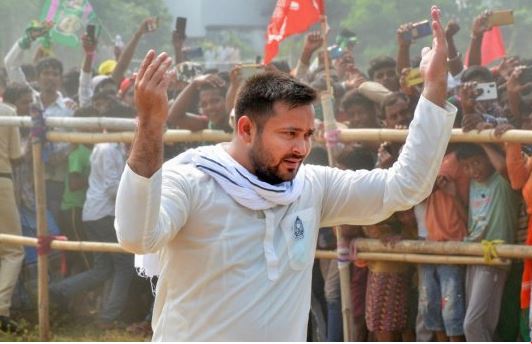
The fear and anxiety experienced by Muslims during the BJP’s campaign which was more focused on Hindutva rhetoric, triggered the success of Asaduddin Owaisi’s All India Majlis-e-Ittehadul Muslimeen, which won 5 Muslim-dominated seats.
The Mahagathbandhan, comprising Rashtriya Janata Dal, Congress, and Left parties, secured 110 seats. Winning 75 seats, the Tejashwi Yadav-led RJD emerged as the single largest party. The Congress could win only 19 of the 70 seats it contested, impacting the Mahagathbandhan tally. In contrast, the Left performed beyond expectations by winning 20 seats out of the 29.
- Hathras gang rape case
On September 14, 2020, a 19-year-old Dalit woman was gangraped by upper caste men in Hathras district of Uttar Pradesh. After fighting for her life for two weeks, the victim died in Delhi’s Safdarjung hospital.
The nationwide outrage, however, was triggered when UP Police cremated the victim’s remains at 3 am on September 29, 2020 without the consent of the family. The case and its subsequent handling was the subject of protests against the Yogi Adityanath government by activists and opposition.
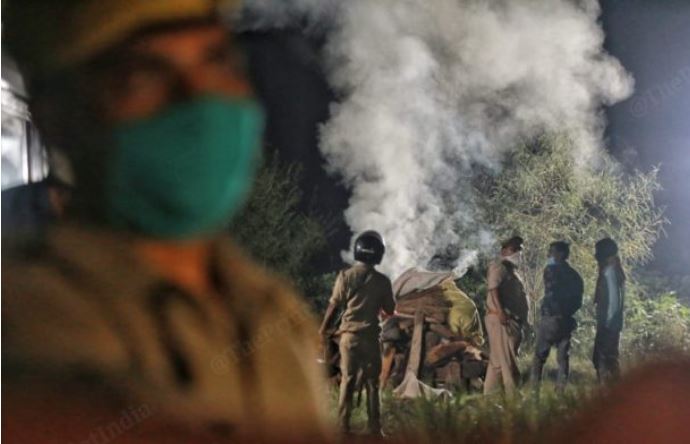
UP Police didn’t let media or opposition leaders meet the victim’s family. After an abortive march, Congress leaders Rahul Gandhi and Priyanka Gandhi Vadra met the family of the victim in their second attempt.
The BJP criticised the Congress saying it doesn’t care about the welfare of the people or the victim’s family and it was all politics in meeting the victim’s family, the Congress accused the BJP government of being insensitive in dealing with the incident and the protests that followed.
- Kangana Ranaut vs Shiv Sena
A war of words broke out between actor Kangana Ranaut and the ruling Shiv Sena in Maharashtra after Ranaut posted on Twitter that she feels unsafe after Sushant Singh Rajput’s death in Mumbai and compared Mumbai with Pakistan-occupied Kashmir while saying she does not feel safe in the city.
In reaction, Shiv Sena leader Sanjay Raut slammed Ranaut and called her names. Reacting to the same, Kangana posted series of Tweets in which she said the actor had been given many titles in past like psycho, witch and stalker.
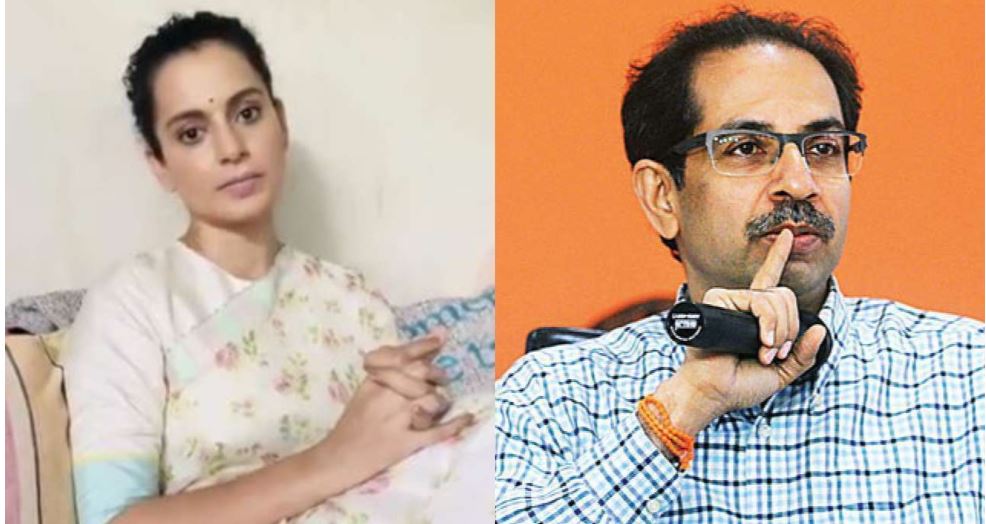
Amidst this controversy, the BMC visited Kangana’s production house office in Mumbai’s Bandra and carried out a demolition of her office on September 9. However, the Bombay High Court ordered a stay on BMC’s move.
But Kangana was not done. She posted a series of videos on Twitter, showcasing the damage done by BMC’s demolition at her Bandra property. She said her home has been demolished and CM Uddhav Thackeray’s ego will be destroyed tomorrow.
- Migrant Crisis
Migrant workers faced multiple hardships because of the coronavirus-induced lockdown across the nation. The major Opposition parties questioned the Centre’s “poor” handling of the pandemic and sought compensation for the migrant workers who died during the lockdown. To repair its image dented by the allegations, the ruling BJP soon took various measures to help migrants and later arranged transport for them. Congress also raised the migrant crisis issue, to attack the NDA, during a poll rally Bihar in Bihar. But still the Congress and the Mahagathbandhan could not win Bihar.
Also Read: Bollywood in 2020: A year of tired remakes, yucky sequels and phones becoming theatres
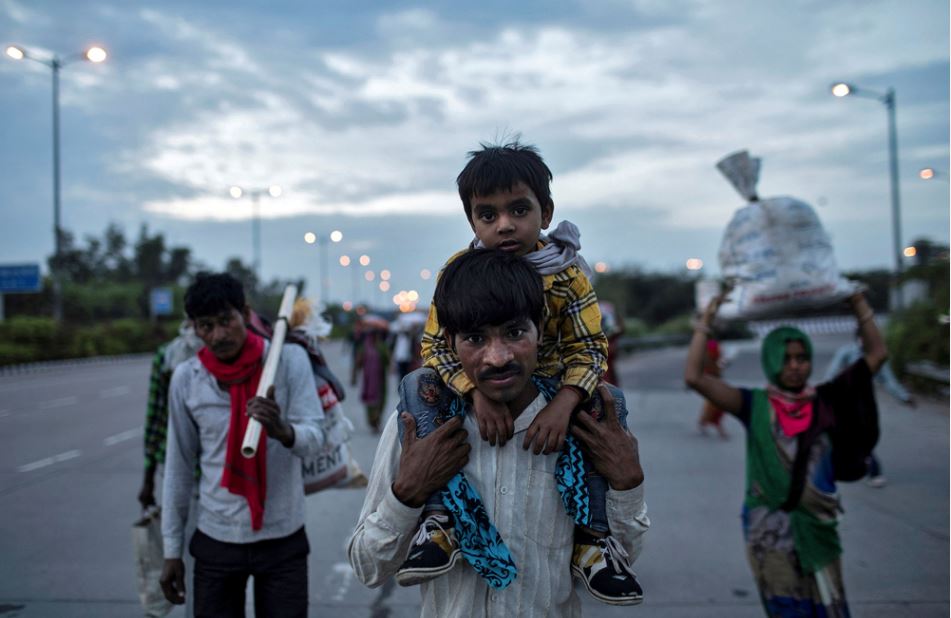
- Chinese app ban
2020 is the year that saw many bans on Chinese apps in the country, in three separate lists.. Here’s list of all the apps that got banned by the government of India.
The first list of banned apps came out on June 29, 2020 in which India banned 59 apps including TikTok, ShareIt, UC Browser, Shein, Likee, and CamScanner. The ban was seen as a response to India-China clashes in the Galwan Valley in Ladakh.
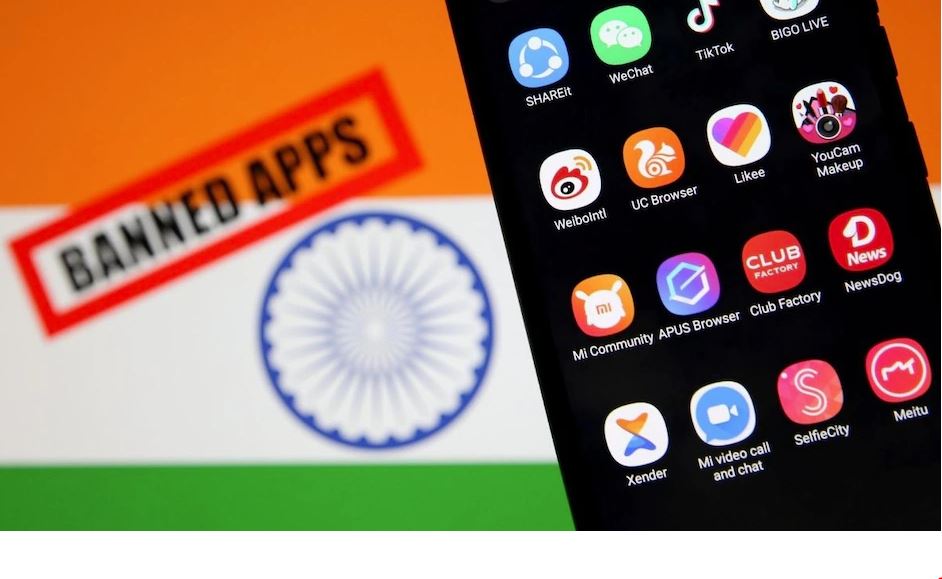
According to the reports, the Ministry of Electronics and Information Technology (MeITY) said the apps were prejudicial to sovereignty and integrity of India, defence of India, security of state and public order. The apps were banned under Section 69A of the Information Technology (IT) Act.
The second list was released on September 5, 2020. This list was even bigger than the first which includes 118 apps in total in including PUBG Mobile and PUBG Mobile Lite were the parts of it. The third list came out on November 24, which included 43 apps in total.
- India-China Clash along LAC in Ladakh
20 Indian soldiers were killed after a clash with Chinese troops that started late in the night on June 15. The violence, the first to claim lives since four Indian soldiers were killed in Arunachal Pradesh in 1975, led to a rapid escalation of tension between the two countries. There were casualties on the Chinese side as well, but the numbers have not been declared by Beijing.
Also Read: Gone in 2020: The stars who died this year
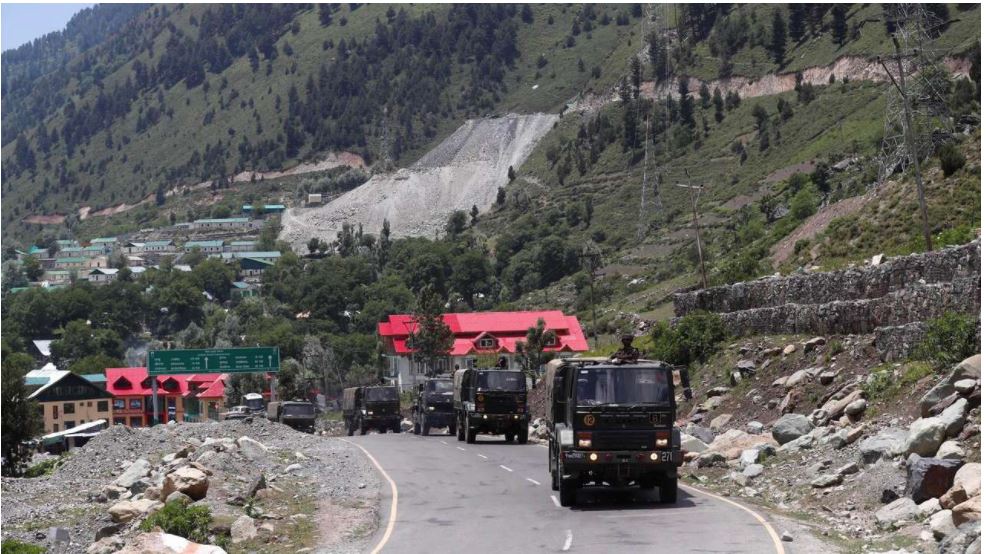
Congress leader Rahul Gandhi and other leaders soon launched a series of attacks on the government over the “violent clashes”. While Gandhi accused PM Modi of “surrendering” to Chinese aggression along the border, BJP slammed the leader for trying to politicise the issue by making statements that are “weak on facts” and “strong on mudslinging”. Gandhi also asked the Centre why soldiers were sent “unarmed to martyrdom”. Hitting back at Gandhi, External Affairs Minister Jaishankar told him to get “the facts straight”. Jaishankar said the Army cannot use firearms during faceoff as per 1996 and 2005 agreements. He also added that is why the Indian soldiers didn’t have arms.
Farmers force their way into India’s consciousness
2020 saw farmers lay siege to Delhi in protest against the 3 farm laws passed by the Narendra Modi government. Though the passing itself was not short on heroics and last-minute dramatics, the steamrolling of the laws through the Rajya Sabha made it seem like all was done and gone. But, no. The Indian farmer, call him rich or call him poor, landed up at the gates of the capital on his tractor with his brethren to protest the silence of the laws on a minimum price guarantee. The crushing of the APMC and the MSP regime led farmers to demand that the laws be repealed, even when the government and its best spokesmen turned their voice hoarse that all was well with the MSP and what-not.
With the Opposition keeping a long distance away from the protesting farmers, the BJP has not got the ammo it needed to discredit similar previous upsurges, like Shaheen Bagh. Some of the farmers did speak English and enjoyed their pizzas leading to much heartburn on TV prime time.
Before the end of the year, the government revitalised talks but the agreement much touted by the media has been on two peripheral issues and not the core laws. So, this struggle of the farmers will continue into 2021 and has to combat the media fatigue that can kill people’s attention span.
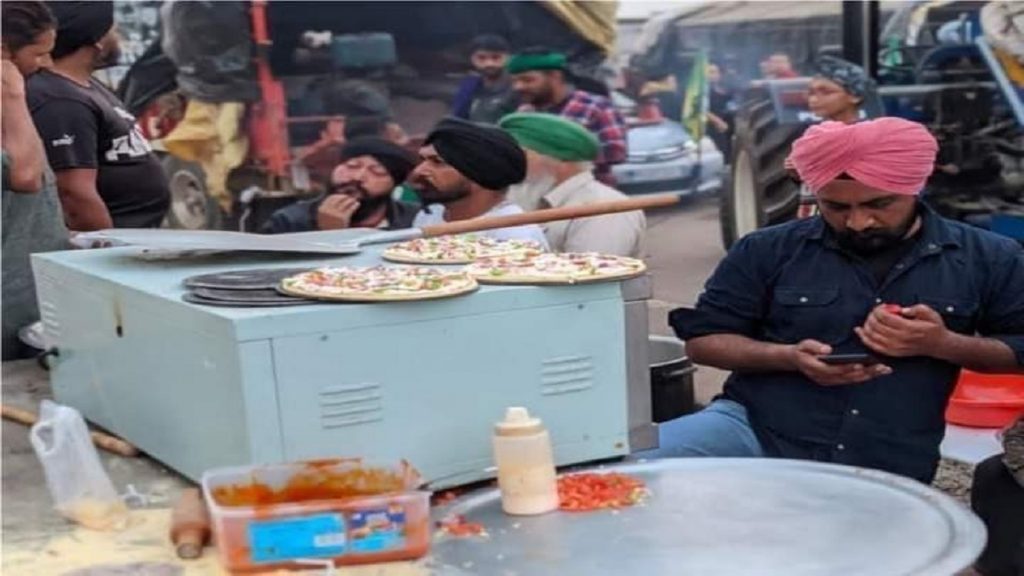
Inputs: Mohammad Javed Rasheedi, Shahrukh Shah and Vikram
2024 Lok Sabha Elections
PM Narendra Modi slams Congress over Sam Pitroda’s inheritance tax remarks, accuses Congress of intending to impose higher taxes
PM Modi was speaking at a public meeting in Chhattisgarh’s Surguja, where he alleged that the Congress wants to fill its own coffers by imposing ever higher taxes and not allowing people to pass on their hard-earned wealth to their children.
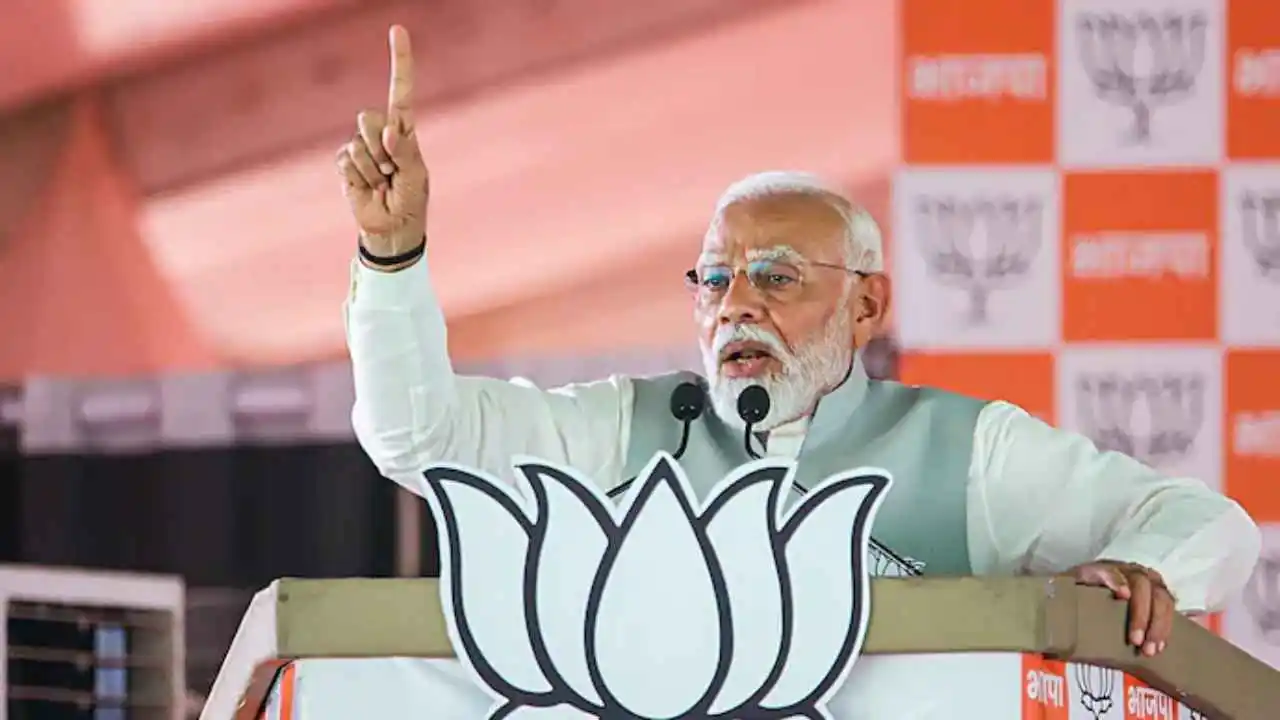
Prime Minister Narendra Modi on Wednesday launched a scathing attack on Congress after Sam Pitroda advocated for a US-style inheritance tax amid the ongoing debate over wealth redistribution. The comments have further fuelled an already-raging controversy over Rahul Gandhi’s promise to conduct a wealth survey if the Congress won the Lok Sabha election.
PM Modi was speaking at a public meeting in Chhattisgarh’s Surguja, where he alleged that the Congress wants to fill its own coffers by imposing ever higher taxes and not allowing people to pass on their hard-earned wealth to their children.
The Prime minister said the advisor (Sam Pitroda) of the prince and the royal family had said some time ago that more taxes should be imposed on the middle class. He said the Congress party says that it will impose an inheritance tax, and it will also impose tax on the inheritance received from parents. PM Modi added the children will not get the wealth that their parents accumulate through their hard work, rather the Congress party will snatch it away from them.
PM Modi said Pitroda’s remarks have exposed the dangerous intentions of the Congress. He took a veiled jibe at the Congress and said the party has only one mantra – to loot people zindagi ke sath bhi, zindagi ke baad bhi (in life and even after death).
The prime minister did not take any names and targeted the Gandhi family and said, those people who considered the entire Congress party as their ancestral property and handed it over to their children, now do not want Indians to pass on their property to their younger generations.
Indian Overseas Congress chairman Sam Pitroda while talking to the media backed his party’s stand on redistribution of wealth and called for a policy for the same while citing the concept of inheritance tax prevailing in some American states.
India News
Ramdev, Balkrishna publish bigger apology in newspapers after Supreme Court’s rap
In the apology published, Ramdev and Balkrishna said they unconditionally apologise in their individual capacity as well as on behalf of Patanjali Ayurved for the non-compliance or disobedience of directions/orders of the Supreme Court of India
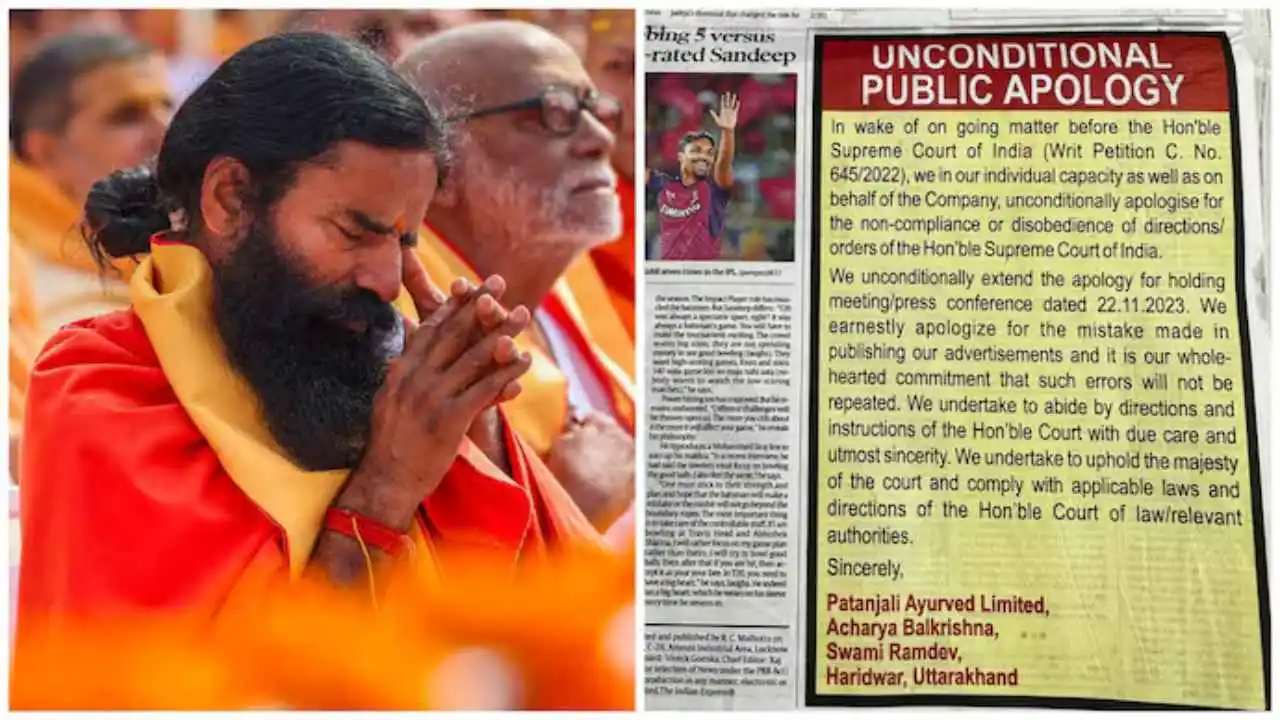
Yoga guru Ramdev and his aide Acharya Balkrishna on Wednesday published a fresh bigger apology in leading newspapers for misleading advertisements of Patanjali’s medicinal products. This time, the apology was bigger in size after the Supreme Court pulled up Patanjali’s Ramdev and Balkrishna for not prominently displaying it earlier.
In the apology published, Ramdev and Balkrishna said they unconditionally apologise in their individual capacity as well as on behalf of Patanjali Ayurved for the non-compliance or disobedience of directions/orders of the Supreme Court of India. The apology said that they earnestly apologise for the mistake made in publishing their advertisements and it is their whole-hearted commitment that such mistakes will not be made again in the future.
During a hearing of the contempt proceedings related to the misleading ads case on Tuesday, the Supreme Court had asked Ramdev and Balkrishna if the size of the apology published in newspapers by Patanjali was similar to full-page advertisements for its products.
Ramdev and Balkrishna had told the Supreme Court Justices Hima Kohli and Ahsanuddin Amanullah that they issued unqualified public apology in as many as 67 newspapers over the issue of misleading ads and they were willing to publish additional apologies for expressing their mistake. The duo said that the cost of the advertisements is Rs 10 lakh.
The Supreme Court bench asked why the apology had been published after one week, just ahead of the case hearing. Justice Kohli also asked if the size of the apology published was the same size as their advertisements? The court also ordered Patanjali to collate the ads and submit them before the Supreme Court bench.
The bench further added that the size of the apologies should not be enlarged and should be supplied to them. The Supreme Court bench wanted to see the actual size. The bench added that they want to see that when they issue an ad it does not mean they have to see it by a microscope.
2024 Lok Sabha Elections
Rahul Gandhi clarifies on wealth survey remark, says aim is to identify injustice
Gandhi further added that everyone should look at Prime Minister Narendra Modi’s reaction and said that the moment he said let’s test how much injustice has been done the BJP started saying that this is an attempt to break down the country.
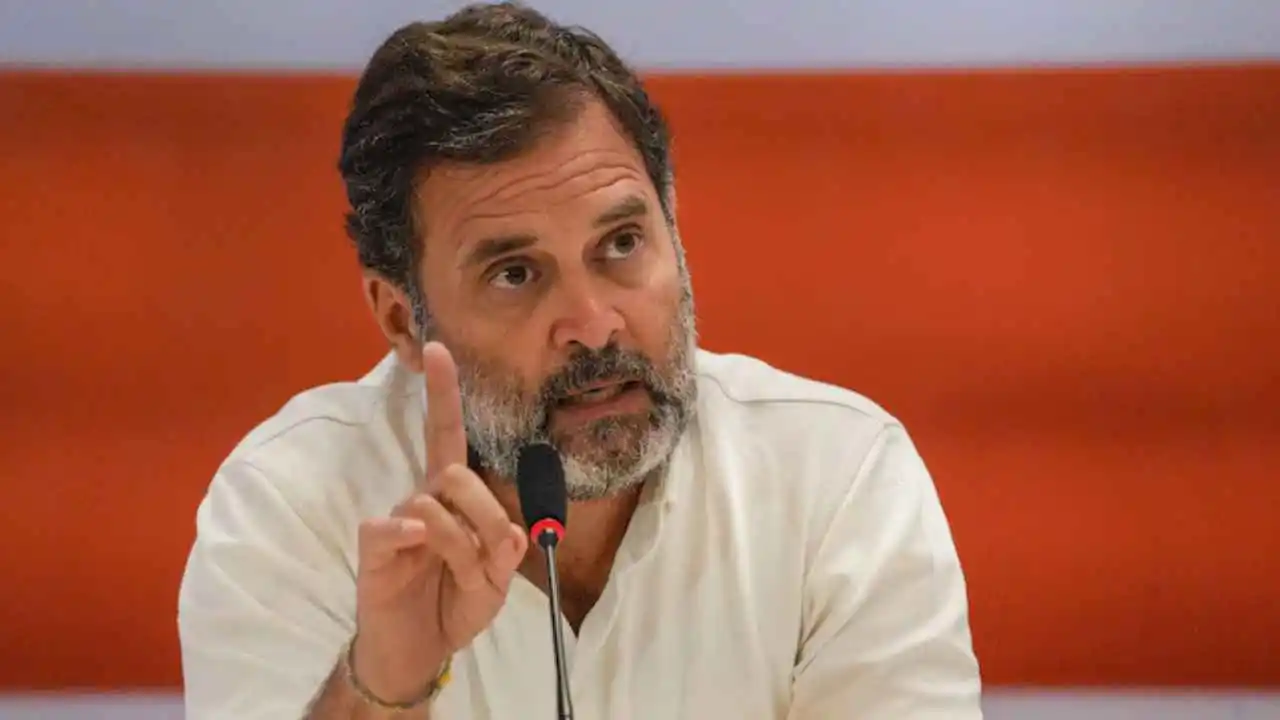
Congress leader Rahul Gandhi on Wednesday took a U-turn on his wealth survey remark and said he only wanted to find out the amount of injustice the nation was facing. Rahul Gandhi was addressing Congress’s Social Justice Conference at Delhi’s Jawahar Bhawan where he clarified that he has not said Congress will take action yet. He said that he was just saying that they will find out how much injustice has been done.
Gandhi further added that everyone should look at Prime Minister Narendra Modi’s reaction and said that the moment he said let’s test how much injustice has been done the BJP started saying that this is an attempt to break down the country. The former Congress chief said through the X-ray (wealth survey), the Congress will get to know the root cause of problem.
Gandhi said it is his life’s mission to ensure justice for the 90 % of the population against whom injustice has been done. He alleged Injustice is being done to 90 percent of Indians and the moment he called for checking this injustice, PM Modi and the BJP started attacking him. Gandhi further added that as soon as the INDIA Bloc will form its government the first thing that would be done is caste census.
On April 7, Rahul Gandhi said Congress, if voted to power, would conduct a financial and institutional survey to ascertain the distribution of wealth among the people in the country. Rahul Gandhi was addressing a public rally in Hyderabad after releasing the Congress’s manifesto where he said the survey will be conducted apart from a nationwide caste census that the party has promised if voted to power.
The former Congress chief also spoke about the Ram Mandir inauguration, and said, not a single Dalit, or a tribal was seen at the temple, or during the inauguration of the new Parliament building. He said 90% of the population understands this.
-
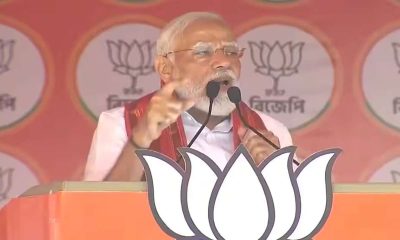
 2024 Lok Sabha Elections23 hours ago
2024 Lok Sabha Elections23 hours agoPM Modi says Congress leaders consider themselves above Lord Ram
-

 Trending24 hours ago
Trending24 hours agoDolly Chaiwala sips coffee atop Burj Khalifa, video goes viral
-

 Trending23 hours ago
Trending23 hours agoNexon owner replaces broken side mirror with a plastic mirror, social media users say epic moment
-
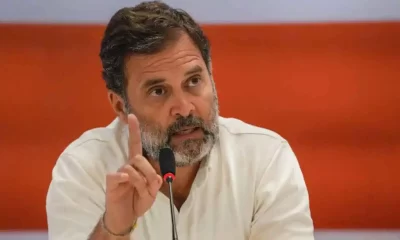
 2024 Lok Sabha Elections5 hours ago
2024 Lok Sabha Elections5 hours agoRahul Gandhi clarifies on wealth survey remark, says aim is to identify injustice
-
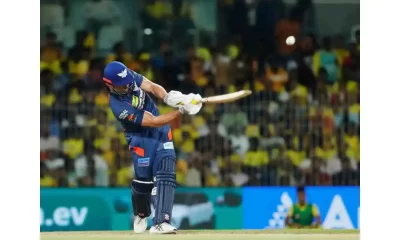
 Cricket news6 hours ago
Cricket news6 hours agoIPL 2024: Marcus Stoinis hits first IPL century as Lucknow Super Giants beat Chennai Super Kings by 6 wickets
-
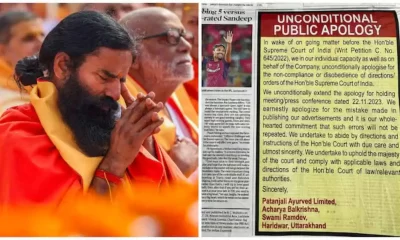
 India News4 hours ago
India News4 hours agoRamdev, Balkrishna publish bigger apology in newspapers after Supreme Court’s rap
-
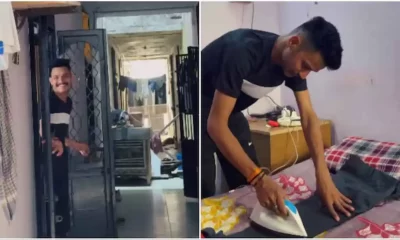
 Trending3 hours ago
Trending3 hours agoA waiter’s life: Social media users go emotional on watching viral video
-
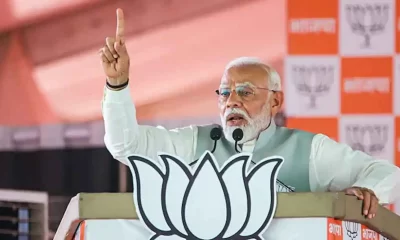
 2024 Lok Sabha Elections1 hour ago
2024 Lok Sabha Elections1 hour agoPM Narendra Modi slams Congress over Sam Pitroda’s inheritance tax remarks, accuses Congress of intending to impose higher taxes

